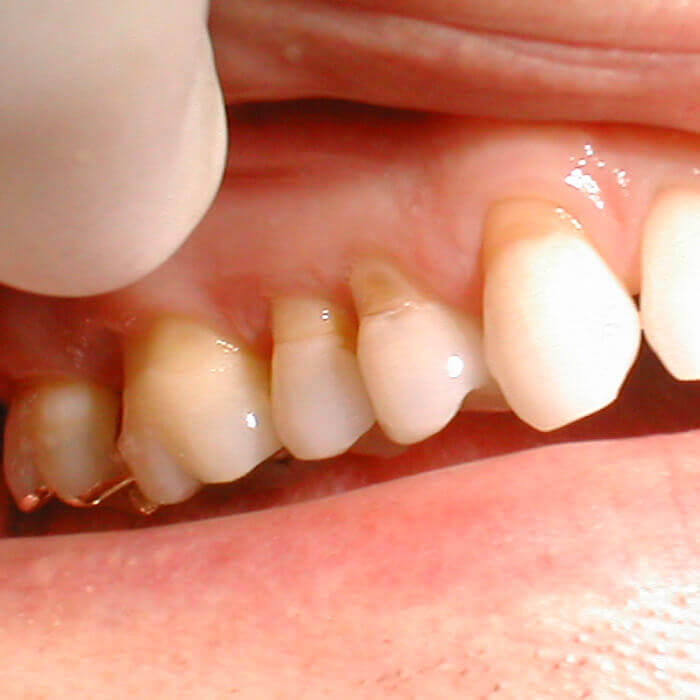
When you have sensitive teeth, brushing, flossing, eating and drinking can cause sharp, temporary pain in your teeth.
Sensitive teeth are typically the result of worn tooth enamel or exposed tooth roots. However, sometimes tooth discomfort is caused by other factors, such as a cavity, a cracked or chipped tooth, a recently placed filling or a side effect of other dental procedures, such as bleaching.
If you're concerned about sensitive teeth, come and see us at Cura. We can then identify or rule out any underlying causes of your tooth pain.Depending on the circumstances a number of solutions could be recommend:
- Desensitising toothpaste:
After several applications, desensitising toothpaste can sometimes help block the pain associated with sensitive teeth. - Fluoride:
By applying fluoride to the sensitive areas of your teeth we strengthen tooth enamel and reduce pain. - Desensitising or Bonding:
Exposed root surfaces can be treated by applying a bonding resin to the sensitive area. Often injections for local anaesthetic might not even be required to perform the procedure. - Surgical gum graft:
If the root of your tooth has lost gum tissue, a small amount of gum tissue can be taken from elsewhere in your mouth and attached to the affected site. This can protect exposed roots and reduce sensitivity. - Root canal therapy:
If your sensitive tooth causes severe pain and other treatments are ineffective, you might require a root canal treatment — a procedure used to treat problems in the tooth's soft core (dental pulp). This is a significant treatment, and only considered in specific clinical circumstances.

To prevent sensitivity of teeth from recurring, your dentist may offer suggestions to help you maintain your oral health.
These are some suggestions:
- Twice a day, brush your teeth with a soft-bristled toothbrush and fluoride toothpaste.
- Floss daily.
- Avoid vigorous or harsh scrubbing, highly abrasive toothpaste, and excessive brushing and flossing.
- If you grind your teeth, ask your dentist about a mouth guard. Tooth grinding can fracture teeth and cause sensitivity.
- Limit acidic foods and drinks, such as carbonated drinks, citrus fruits, wine - all of which can remove small amounts of tooth enamel over time. When you drink acidic liquids, use a straw to limit contact with your teeth.
- After eating or drinking an acidic substance, drink milk or water to balance the acid levels in your mouth.
- It also helps to avoid brushing your teeth immediately after eating or drinking acidic substances, since acid softens enamel and makes it more vulnerable to erosion during brushing.
